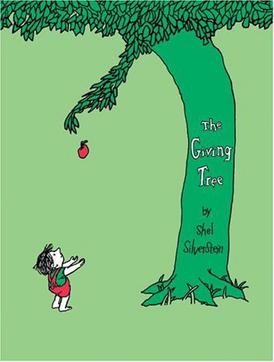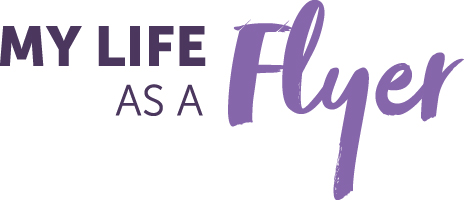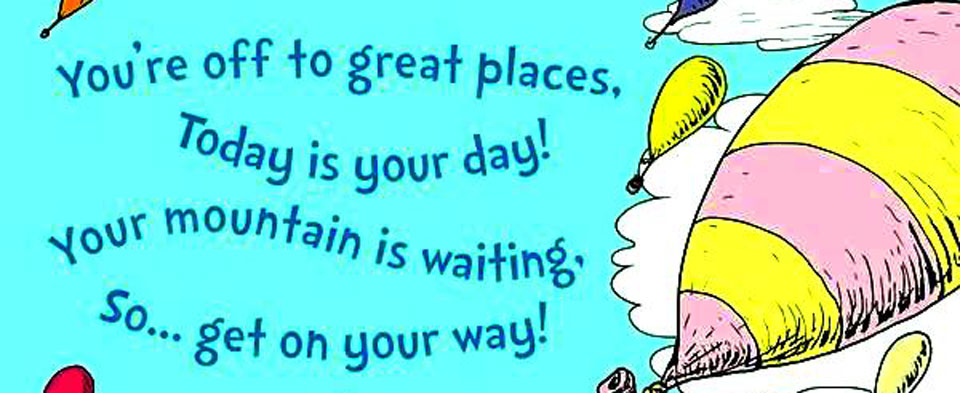The stack of books next to my bed right now include Justice by Michael Sandel, On Being and Nothingness by Jean Paul Sartre, and This Side of Paradise by F. Scott Fitzgerald. I’ve always been a big reader and, as I’ve advanced further and further into college, my reading choices have become more and more intense; they’re the classics, or heavily theoretical, or on the cutting edge of current societal commentary. This last weekend when I went home I grabbed The Phantom Tollbooth off my bookshelves. My copy is so old and tattered that it looks like something that spent years at the bottom of the used book pile at the library but it has actually just been read and reread and then read and reread again by my dad, my brother, and I for years. The power of the simplicity of The Phantom Tollbooth got me thinking about how sometimes the best lessons we can learn are the simple ones and how most of the time, those ideas can be found in childhood favorites. Here is a list of ten exceptional books from my childhood that I think contain exceptionally powerful but refreshingly simple ideas.
10. Chrysanthemum by Kevin Henke – The story of a mouse named Chrysanthemum who is teased about her unique name until a teacher and her family convince her that it is beautiful and Chrysanthemum embraces her individuality. The lesson here is incredibly simple and obvious but often one that is struggled with. For some reason or another, everyone is unique but we often seek to hide that uniqueness rather than embrace it; beauty exists in individuality.

9. Where the Red Fern Grows by Wilson Rawls – The exceptional story of the boundless between a boy and his dogs. I’ve always thought dogs to epitomize unconditional love. Pets are often our first friends and our best friends as children but I don’t think we’re ever too old to love a dog and be loved unconditionally in return.

8. Guess How Much I Love You by Sam McBratney – As I entered high school and even college, it seemed my parents and I fought more and more and more but whenever times got hard it was my parents, rather than my friends, who were there to pick me up and dust me off during hard times. It’s easy to forget that our parents would sacrifice everything for us, but this book has always brought tears to my eyes with how beautifully it captures the love of a parent for their child.

7. Harold and the Purple Crayon by Crockett Johnson – First, I’ve always loved the simple, purple illustrations of this book, drawn as if done by Harold and his purple crayon. Secondly, I don’t think enough can be said about the power of creativity and imagination. We often leave such things behind, condemning them as the playthings of children meant for forts and dress-up, rather than the things of the practical and pragmatic world of adults. Yet imagination and the sense of adventure it ignites give color to the grey the adult world can sometimes become.

6. The Giver by Lois Lowry – Speaking of grey worlds, The Giver most definitely deserves to be on this list. The hardest part of growing up is the loss of innocence, the good things in life often come with hard, painful, inexplicable things to the point that sometimes the bad in life can seem to outweigh the good. The Giver reminds us that a world without bad cannot be described as good and as bad as things may get, it is the full range of human emotions that allow us to appreciate life to the fullest.

5. Milo and the Magical Stones by Marcus Pfister – This book tells the story of mice who learn to respect the environment and give back to it in equal measure for what they take. It is easy to forget that without a healthy environment we have nothing. The world doesn’t exist because of us but rather we exist because of it and we need to give back to the environment in equal measure for what we take of it.

4. The Giving Tree by Shel Silversten – Another book about unconditional love, though I would feel guilty revealing the ending, the tree sacrifices selflessly for the boy’s happiness. The competitive, success-driven college atmosphere often fails to stress how important it is to be humble and altruistic. I would be hard-pressed to find a more beautiful story.

3. The Trumpet of the Swan by E. B. White – I must admit a small bias here; I’ve been playing instruments since I was about 7. However, there is not much in the world more powerful than music. As this story illustrates, via a swan who cannot speak and therefore learns to play trumpet to communicate, music transcends adversity, disability, language, and nearly every other border. Furthermore, the story also encourages us to conceive differences anew. Just because someone doesn’t conform to a normative way of thinking, acting, or expressing themselves, doesn’t mean they don’t have meaningful and important contributions to make.

2. Oh, The Places You’ll Go by Dr. Seuss – Of course Dr. Seuss made the list; any list of childhood books is incomplete without him! Every line of the book is incredibly inspirational. Seuss encourages us to dream bigger than we even dare to and never forget the power and potential that each of us possess: “You’re off to Great Places! Today is your day! Your mountain is waiting, So… get on your way!”

1. The Phantom Tollbooth by Norton Juster – Last but most definitely not least, this nonsensical and whimsical story documents the adventures of Milo, who lives in a very boring and drab world until the phantom tollbooth appears in his room. It takes him to the fairy-tale world of the Kingdom of Wisdom, introducing him to some of the most memorable characters ever created in the world of literature. Milo returns to his own world and finds it to be one of adventure and beauty rather than the boring and drab one he left. We could all benefit from a reminder of the power of perspective…as well as the reading of a whimsical fairy tale.
“Every reader finds himself. The writer’s work is merely a kind of optical instrument that makes it possible for the reader to discern what, without this book, he would perhaps never have seen in himself.” – Marcel Proust

